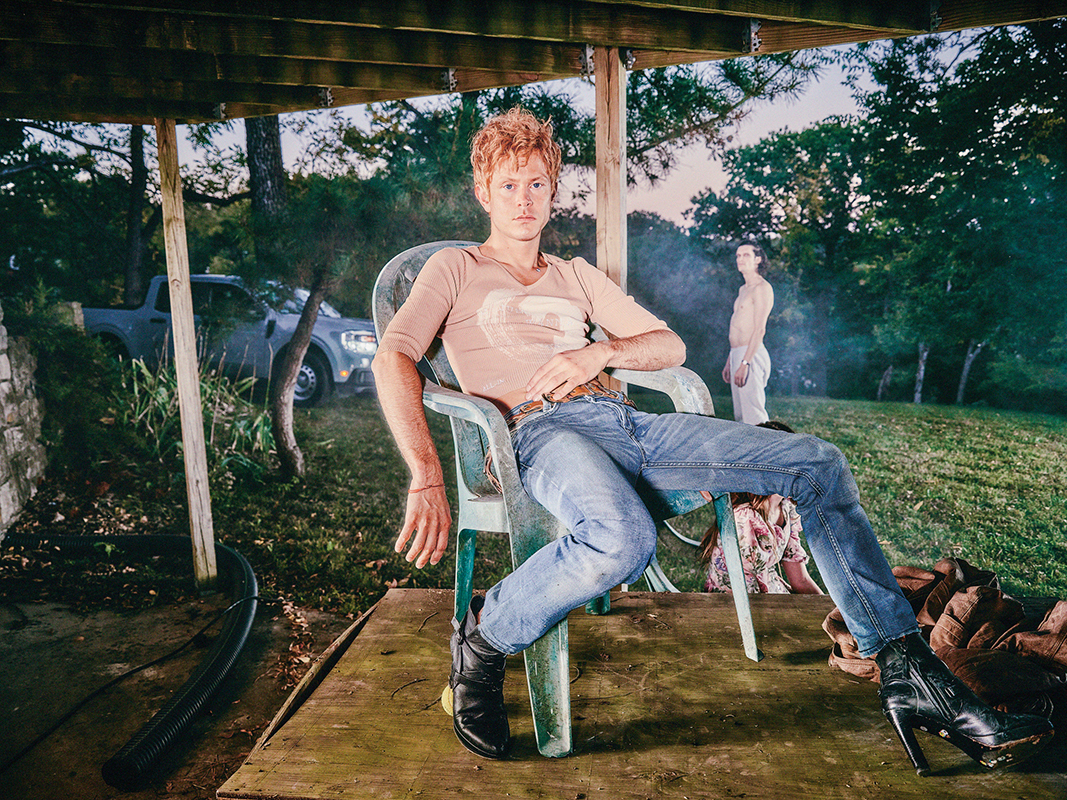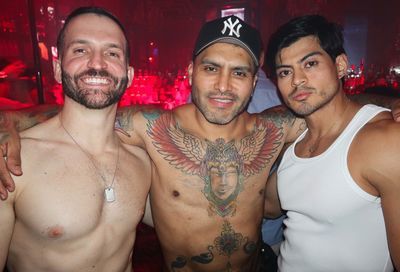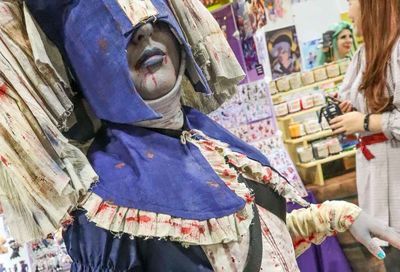Golden Blues: Blues Alley turns 50
Blues Alley's 50-year anniversary is a milestone unrivaled not only in D.C. but in all of American jazz

Blues Alley has become such an iconic jazz music venue, it provokes an obvious question: Is there any big name the club hasn’t hosted?
“I would have said yes before I bought the club,” says Harry Schnipper, who grew up going to concerts at Blues Alley. But several years after becoming the club’s sole owner in 2003, Schnipper snagged the one name missing from its roster: Dave Brubeck.
“I had already been working with him on a number of educational outlets,” says Schnipper, who has led the Blues Alley Youth Orchestra and related Blues Alley nonprofit ventures since the mid-1990s. “So I said to Dave and his wife Iola, ‘Would you like to come to Blues Alley and play the club?'”
“We’ve never been asked and we would love to!” was the response. Brubeck last played Blues Alley in 2011. He died the following year.
This year marks the 50th anniversary of Blues Alley, a milestone that appears to be unrivaled not only in the D.C. area but also in the wider world of American jazz. By contrast, Blues Alley bills itself as “America’s oldest continuously operated jazz supper club” because it has presented live music nearly every day since opening in 1965. That’s roughly a year before both Wolf Trap and the Birchmere opened in suburban Virginia, making them Blues Alley’s closest rivals for the title of oldest music venue in the D.C. area. Today’s other celebrated local jazz venue, U Street’s Bohemian Caverns, was founded 90 years ago, but it closed shortly after the riots in 1968 and only reopened again in 1990.
“We morphed over the course of five decades according to American musical tastes,” Schnipper says, noting that Blues Alley started as a traditional, or Dixieland, jazz club, but now presents the full jazz spectrum. “The jazz umbrella is huge,” he says. “It includes everything from rhythm and blues, neo-soul, some hip-hop sampling, spoken word, big band, avant-garde, straight-ahead.” The key is knowing the audience. And these days, the Blues Alley audience is more often than not from out of town, even from overseas — from academics and conventioneers to international tourists and diplomats.
In recent decades, Schnipper has worked to develop greater strategic partnerships with embassies, the federal government — chiefly Voice of America and the National Park Service — and august nonprofit institutions, from the Smithsonian Institution to the Kennedy Center. “There’s no for-profit jazz club in America that does what we do,” Schnipper says, pointing out the annual Big Band Jam! festival that the Blues Alley Jazz Society presents with the Smithsonian, featuring the Smithsonian Jazz Masterworks Orchestra. Schnipper stresses the anomaly of this situation: “a private club promoting a public institution in its private venue.”

This Saturday, July 18, the Music Center at Strathmore presents a golden anniversary toast to three artists whose careers Blues Alley has helped nurture: Angela Winbush, Kindred the Family Soul, and Chelsey Green. “Angela comes at least once a year to the club,” Schnipper says. “Kindred, at least twice a year, and Chelsey, who is not a terribly distant graduate of the Duke Ellington School of the Arts — we were one of the first to start presenting as well.”
Next weekend, Blues Alley presents a string of concerts by one of its longest-running annual performers, Larry Coryell, who will play with four other guitarists in a special “Strings Attached” program.
“I don’t think I got in there until the early ’70s,” the pioneering jazz/rock fusion guitarist says, noting that he played the original Bohemian Caverns and the former Cellar Door previously. One early highlight from Blues Alley is when Coryell sat in with Dizzy Gillespie in the late 1970s, when the great jazz trumpeter was still glowing from President Jimmy Carter’s visit to the club earlier that week: “As a tribute to Jimmy Carter, he played his favorite jazz tune ‘Salt Peanut.'” After so many visits, Coryell says “it really is a place where I can let my hair down — play what I feel like playing, do a lot of spontaneous stuff.
“The people who run Blues Alley are great,” he continues. “They’ll do anything for the musicians and they’re very good with their customers.” Coryell singles out the the bar and kitchen staff, noting that the food is particularly good at the club.
“It’s a shame that they never put anything on the menu that they named after me,” Coryell laughs, “but what are you going to do? I’m not very edible anyway. Boney Shins Coryell.”
“Blues Alley’s 50th Anniversary” featuring Angela Winbush, Kindred the Family Soul & Chelsey Green is Saturday, July 18, at 8 p.m. at the Music Center at Strathmore, 5301 Tuckerman Lane, North Bethesda. Tickets are $48 to $88. Call 301-581-5100 or visit strathmore.org.
“Blues Alley Celebrates 50 with Larry Coryell & Strings Attached” is Saturday, July 25, at 8 p.m. and 10 p.m., at Blues Alley, 1073 Wisconsin Ave. NW. Tickets are $25, plus $12 minimum purchase. Call 202-337-4141 or visit bluesalley.com.
Support Metro Weekly’s Journalism
These are challenging times for news organizations. And yet it’s crucial we stay active and provide vital resources and information to both our local readers and the world. So won’t you please take a moment and consider supporting Metro Weekly with a membership? For as little as $5 a month, you can help ensure Metro Weekly magazine and MetroWeekly.com remain free, viable resources as we provide the best, most diverse, culturally-resonant LGBTQ coverage in both the D.C. region and around the world. Memberships come with exclusive perks and discounts, your own personal digital delivery of each week’s magazine (and an archive), access to our Member's Lounge when it launches this fall, and exclusive members-only items like Metro Weekly Membership Mugs and Tote Bags! Check out all our membership levels here and please join us today!























You must be logged in to post a comment.